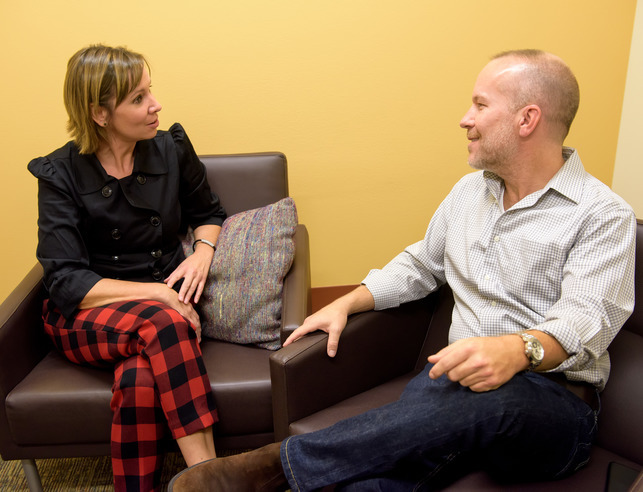WAYS to help:

- Thinking about or talking about harming oneself
- Talking or writing about death
- Seeking out the means for self-harm, such as weapons or drugs
- Expressing hopelessness, or self-hatred and contempt
- Sudden changes in behavior
- Dramatic mood swings
- Emotional outbursts, more withdrawn or more animated than usual
- Losing interest/withdrawing from regular activities and people
- Falling asleep in class or other inopportune times
- A dramatic change in energy level (either direction)
- Worrisome changes in hygiene or personal appearance
- Significant changes in weight
- Frequent state of alcohol intoxication (examples – bleary-eyed, hung-over, smelling of alcohol)
- Noticeable cuts, bruises or burns on student
- Changes in eating or sleeping habits
- Getting affairs in order
- Saying goodbye
- Sudden sense of calm
Academic signs:
- Repeated absences from class or lab
- Disorganized or erratic performance
- Student sends frequent, lengthy, “ranting” or threatening types of emails to professor or teaching assistant.
- Continual seeking of special provisions
Additional risk factors:
- Mental health disorders
- Alcoholism or drug abuse
- Previous suicide attempts or family history of suicide
- Terminal illness, a recent loss or tragic event
- Social isolation and loneliness
- Speak directly to the person in a comfortable, private space.
- Let the person know that you care about them and want to help.
- Describe what you have noticed about their behavior that leads you to be concerned. Express your feelings using “I” statements. For example, you could say to a friend whose alcohol use concerns you, “I’m worried about you because I notice you’re drinking more and not making it to your morning classes anymore.” Or “I have noticed that you seem very tired the past two weeks.”
- Ask open-ended questions. Say things like “Tell me more about…” “When did you begin feeling this way?”
- Avoid “Why” questions, which may be experienced as judgment.
- Listen with your full attention. Restate what you have heard, so the person will know you understand.
- Let them know they are not alone.
- Be patient, and don’t jump to conclusions or offer quick solutions.
- Ask what they think might help.
- Share resources you are familiar with. Help them connect. Check in.
- Convey that asking for help is a sign of strength.
- Ask, “Who in your life/community would you be comfortable talking with about this situation?” or “What do you think would help in this situation?”.
- Suggest they schedule an appointment with the University Counseling Center. Call together and ask for a consultation or set up an appointment (crisis immediately or within 24 hours).
If the person is not willing to visit more about your concerns, continue to observe them and
- Let them know you are concerned and available to talk when they are ready
- Provide contact information for crisis intervention services and describe other available resources to them.
- Offer to help them connect, either via phone or walk over to the University Counseling Center (341 Knight Hall) with them.
If they are not willing to seek help on their own, there are additional ways you can help.
- Contact the University Counseling Center and ask for a consultation regarding someone you may be concerned about.
- Report your concerns to the Dean of Students through WyoCares.
- Contact the Campus Police Department and request a wellness check.
- If possible, don’t leave the person alone.
- Call 911 and report the emergency.


